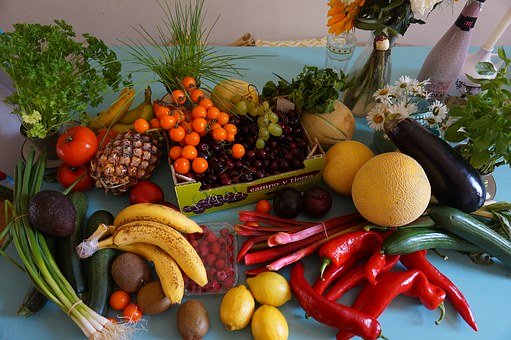Let’s look at 10 great tips for eating a whole foods diet, as it isn’t always easy to make the shift, but your body will thank you for this in the long run, as you will be providing it with the nutrient profile it needs to repair and keep you performing at your best in whatever life you are currently leading!
As you get older, it is essential to eat healthy foods that nourish and maintain your youthful self. You will feel so much better and more energized.
What Are Whole Foods?
Basically, whole foods are foods that are in their natural form and they haven’t been altered by processing or any other chemical processes.
Here are some examples of the top whole foods, in a nutshell:
- Whole grains and starchy vegetables
- Beans and other legumes
- Berries
- Other fruits
- Cruciferous vegetables
- Leafy greens
- Non-starchy vegetables
- Nuts and seeds
Tips For Eating A Whole Foods Diet
 1. Start Gradually
1. Start Gradually
As you begin to choose a healthier diet consisting of whole foods, attempting to completely transform your eating habits from day 1 is a big mistake.
Instead of ransacking your pantry and trashing all of your household food items, it’s best to gradually eliminate the unhealthy foods by attrition.
As you finish a less than favorable item, simply don’t buy it again. Each shopping trip try simply replacing that item with a whole food one item at a time.
By implementing the changes slowly, you won’t even notice it happening.
2. Experiment With New Foods
Most of us could probably check off our weekly shopping list with our eyes closed. Falling into the habit of buying the same unhealthy food options is just so easy to do.
As you begin to seek out more whole foods, you will no doubt discover items at your local supermarket completely unknown to you! Instead of passing these items by, start sampling these choices here and there.
You may find something that hits the spot and provides a tasty, healthful option you will love.
3. Make The Process Enjoyable
Although whole foods are great, filling your shopping cart up with whole foods you can hardly stomach is not and defeating the purpose a bit.
Eating should always be enjoyable, and with the huge variety of whole foods available, finding items you like to eat is very achievable.
If you purchase something that doesn’t hit the spot, don’t get discouraged. Keep experimenting until you have a list of go-to whole foods you look forward to eating.
4. Adjust Your Shopping
One thing you are sure to notice as you begin selecting more whole food is that these items tend to spoil much faster than their processed counterparts. Trust and believe, there is nothing wrong with these items, food isn’t meant to keep in your cabinets for weeks and months on end!
With this in mind, you may need to begin buying less during each grocery trip and shop more frequently instead.
5. Find Fun Recipes
Just because you begin selecting whole foods, there is no need to eat them exactly the way they came from the farm! Just as you would with any other food item, look up creative recipes that incorporate these new items in tasty and creative ways.
Boring, bland meals day after day is sure to derail your attempt at a healthier way of eating.
6. Visit Local Farmers Markets
Almost every community has a farmers market that allows you to purchase local foods grown right at home. While these items are usually much cheaper than your local organic supermarket, this is also a great way to support local businesses and promote fellowship within your community.
7. Don’t Adhere To One Item
A lot of fad diets today encourage you to base your entire eating pattern around a very limited number of whole food items.
Avoid buying into this advice. No single food item provides all the key nutrients your body needs. Vary your meals and food choices to make sure you are getting an adequate amount of nourishment.
8. Be Cautious Of Advertising
Given the fact that whole food diets have become increasingly popular as of late, a lot of advertisers are taking advantage of this trend.
Just because something says whole food or healthy does not mean this is always the case. When selecting items, spend more time looking at the nutrient information on the back of the container rather than the flashy promises on the front!
9. Create A List Beforehand
 As you may already be aware, buying whole foods isn’t the cheapest option. The total at the cash register may come as a bit of a surprise at first.
As you may already be aware, buying whole foods isn’t the cheapest option. The total at the cash register may come as a bit of a surprise at first.
To mitigate this discomfort, take the time to prepare a list of only the things you need before you even step into the grocery store.
10. Be Ready For An Adjustment
Here’s the thing, changing the way you eat is going to be strange at first. As with anything else, shifting a deeply ingrained habit in any area of your life involves an adjustment period. It is important to keep in mind exactly why you are changing the way you eat and remind yourself of the vast array of benefits that come with fueling your body the right way!
Please comment below if you have any more tips when it comes to eating a whole food diet.

